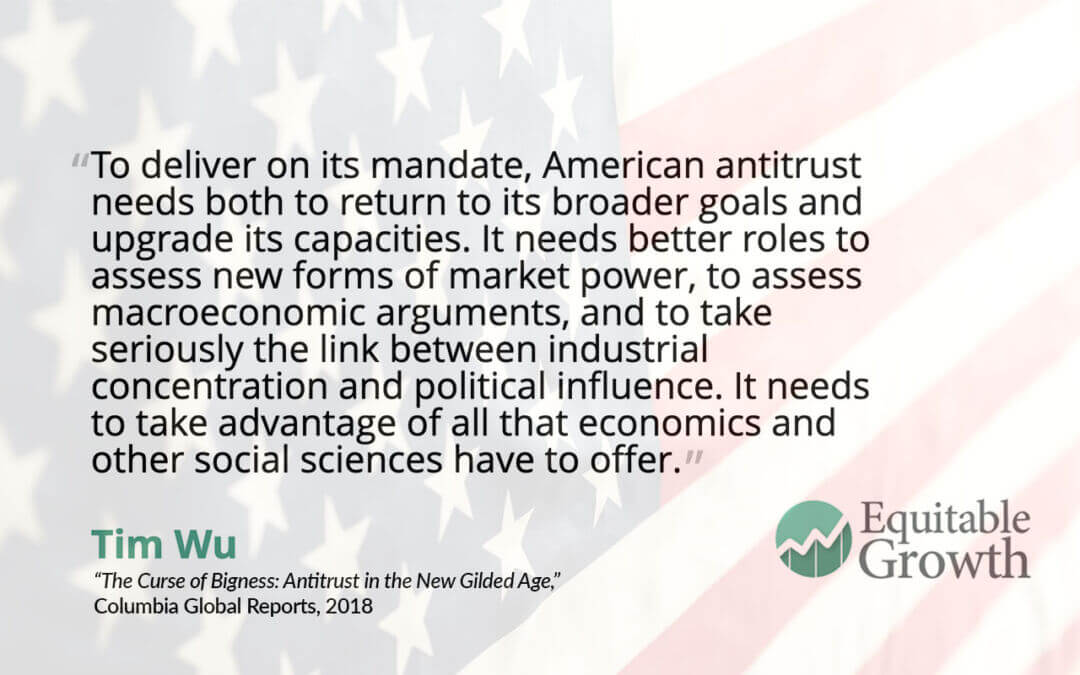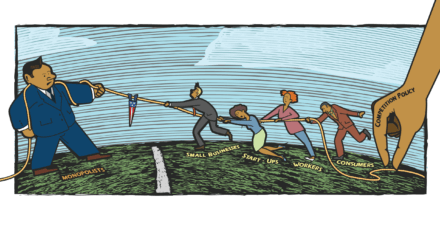Expert Focus: From academia to the administration, Equitable Growth scholars transition to executive branch

Equitable Growth is committed to building a community of scholars working to understand how inequality affects broadly shared growth and stability. To that end, we have created the monthly series, “Expert Focus.” This series highlights scholars in the Equitable Growth network and beyond who are at the frontier of social science research. We encourage you to learn more about both the researchers featured below, those featured in prior installments, and our broader network of experts.
When President Joe Biden held his first cabinet meeting, he boasted that the diverse group of federal leaders “looks like America.” The president’s cabinet also includes a number of former academics, bringing much-needed rigorous, evidence-backed thinking to government. Indeed, across the newly formed federal administration, academic researchers—many of them previously funded by or collaborators with Equitable Growth—have taken on critical policymaking roles.
In addition to Equitable Growth co-founder Heather Boushey, who is now a member of the White House Council of Economic Advisers, former Equitable Growth staffers Greg Leiserson and Amanda Fischer have also joined the executive branch, serving at the CEA and the U.S. Securities and Exchange Commission, respectively. But it’s not just former Equitable Growth in-house experts bringing evidence-backed economic research and policy expertise to bear on the policymaking process. This installment of “Expert Focus” highlights scholars who have joined the Biden administration to make informed federal policymaking decisions that will lead to economic growth that is strong, stable, and broadly shared.
Alex Hertel-Fernandez
U.S. Department of Labor; on leave as associate professor at Columbia University
Alex Hertel-Fernandez serves as the deputy assistant secretary for research and evaluation at the U.S. Department of Labor. In this role, Hertel-Fernandez evaluates the effectiveness of Labor Department programs and estimates the impact of various policies on U.S. workers. Prior to joining the Biden administration, he worked with Equitable Growth to distill his research findings on labor movements, labor law, and the relationship between unions and Unemployment Insurance. He received an Equitable Growth grant in 2017 to study worker preferences for labor organizing and representation across industries and occupations in the U.S. workforce, releasing his findings in a 2019 working paper.
His recent book, State Capture: How Conservative Activists, Big Businesses, and Wealthy Donors Reshaped the American States—and the Nation (Oxford University Press, 2019), outlines how networks of conservative businesses, donors, and activists developed organizations that recreate federal and state public policies and how similar efforts from progressives fell short.
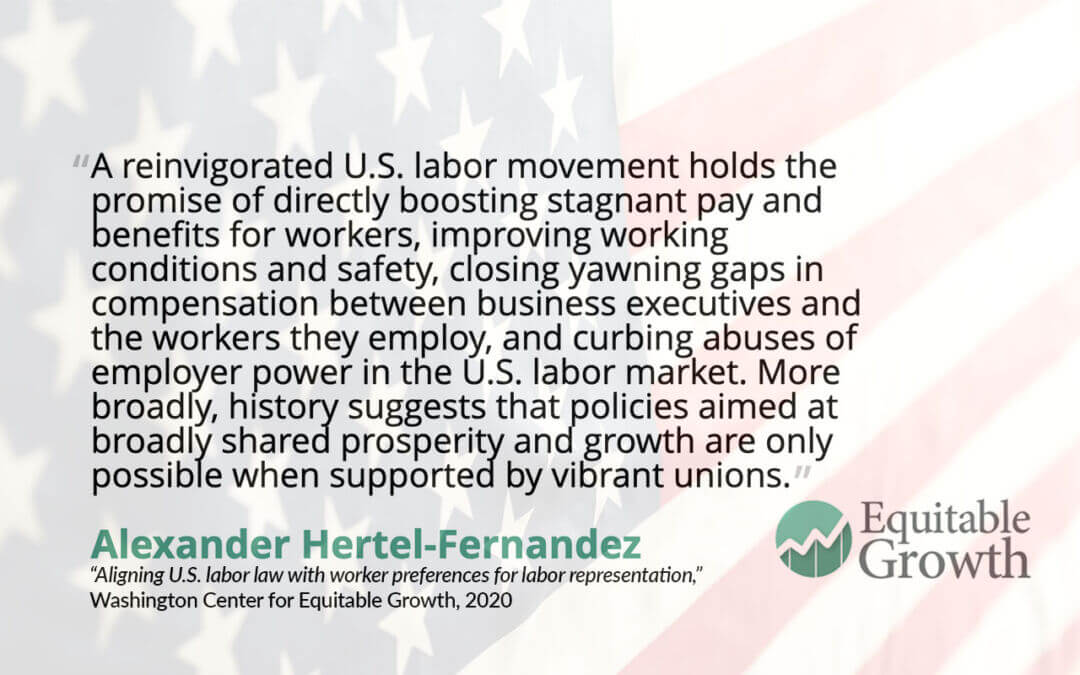
Cecilia Rouse
White House Council of Economic Advisers; on leave as professor at Princeton University
Cecilia Rouse was confirmed by the Senate in March as the 30th chair of the Council of Economic Advisers, making her the first Black leader of the CEA in its 75-year history. In this role, she serves as President Biden’s chief economist and a member of the Cabinet.
Rouse was the keynote speaker at the relaunch of our popular Research on Tap event series, where she participated in a one-on-one conversation alongside reporter Tracy Jan of The Washington Post. During the event, Rouse discussed the need for increasing public investments to address the underlying structural inequalities laid bare by the coronavirus recession and advance a sustained economic recovery that puts the United States on a path toward strong, stable, and broadly shared growth.
Immediately prior to joining the Biden administration, Rouse served as the dean of the Princeton School of Public and International Affairs, where she is also a professor of economics. From 2009 to 2011, Rouse served as a member of President Barack Obama’s Council of Economic Advisers. She served on the National Economic Council in the Clinton administration as a special assistant to the president from 1998 to 1999.
Her academic research has focused on the economics of education, including the benefits of community colleges and impact of student loan debt, as well as discrimination and the forces that hold some Americans back in the economy.
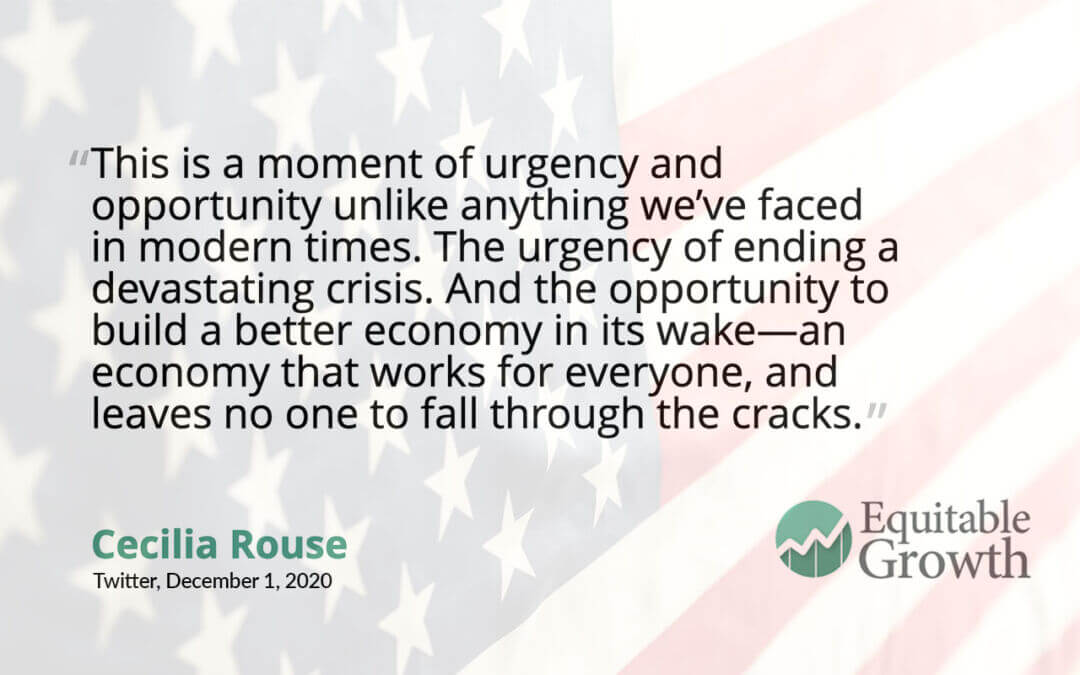
Gbenga Ajilore
U.S. Department of Agriculture; previously senior economist at the Center for American Progress
Olugbenga “Gbenga” Ajilore is a senior advisor in the Office of the Under Secretary for Rural Development at the U.S. Department of Agriculture. Prior to his current role, he was a senior economist at the Center for American Progress and former associate professor of economics at the University of Toledo. He is a past president of the National Economic Association and is a frequent media commentator on the labor market.
His research has focused on race and local public finance, peer effects and adolescent behavior, and police militarization. Ajilore’s work has been published in numerous journals, such as The Review of Black Political Economy, Economics and Human Biology, the Review of Economics of the Household, and the Atlantic Economic Journal.
In addition, Ajilore spoke at our recent virtual event, “Beyond place-based: Reducing regional inequality with place-conscious policies,”discussing how national actions have driven regional inequalities in rural regions and what this means for policy solutions.
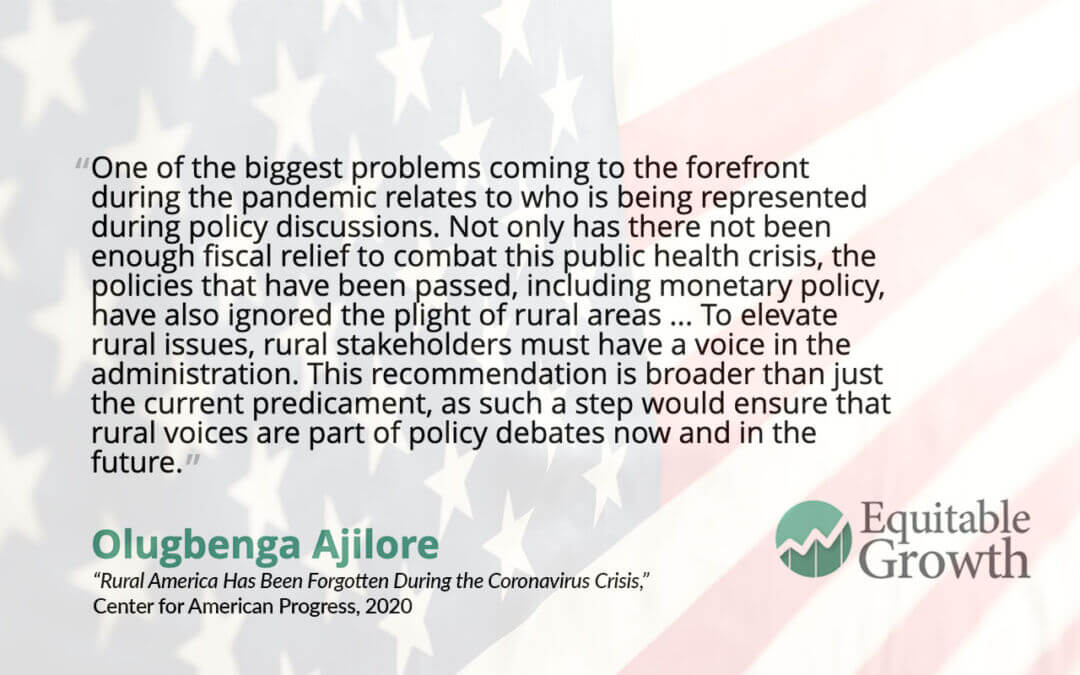
Kimberly Clausing
U.S. Department of the Treasury; previously professor at University of California, Los Angeles School of Law
Kimberly Clausing serves in the Treasury Department as the deputy assistant secretary leading the Office of Tax Analysis. Clausing is in charge of examining tax proposals to inform which policies the Biden administration will pursue and how those policies will impact the overall economy. She was involved in Equitable Growth’s early efforts to understand how the tax system could support a more equitable distribution of growth, receiving funding for her research on the corporate tax system. She has also written for Equitable Growth on international trade and the coronavirus pandemic.
Clausing is a U.S. Fulbright Program scholar and received two research awards to the Centre for European Policy Studies in Brussels, Belgium and to the Eastern Mediterranean University and the University of Cyprus in Cyprus. In addition to being an Equitable Growth grantee, her research has also been supported by external grants from the National Science Foundation, the Smith Richardson Foundation, the International Centre for Tax and Development, and the U.S. Bureau of Economic Analysis.
Clausing previously researched economic policy with the International Monetary Fund, The Brookings Institution, and the Tax Policy Center, and she has testified before both the House Ways and Means Committee and the Senate Committee on Finance. In addition, she previously worked as a staff economist at the White House Council of Economic Advisers. Prior to becoming a professor at UCLA School of Law, she taught economics at Reed College and Wellesley College.
Her research focuses on the taxation of multinational firms, analyzing how government decisions and corporate behavior intersect within a global economy. She has been published in numerous articles and is the author of Open: The Progressive Case for Free Trade, Immigration, and Global Capital (Harvard University Press, 2019).
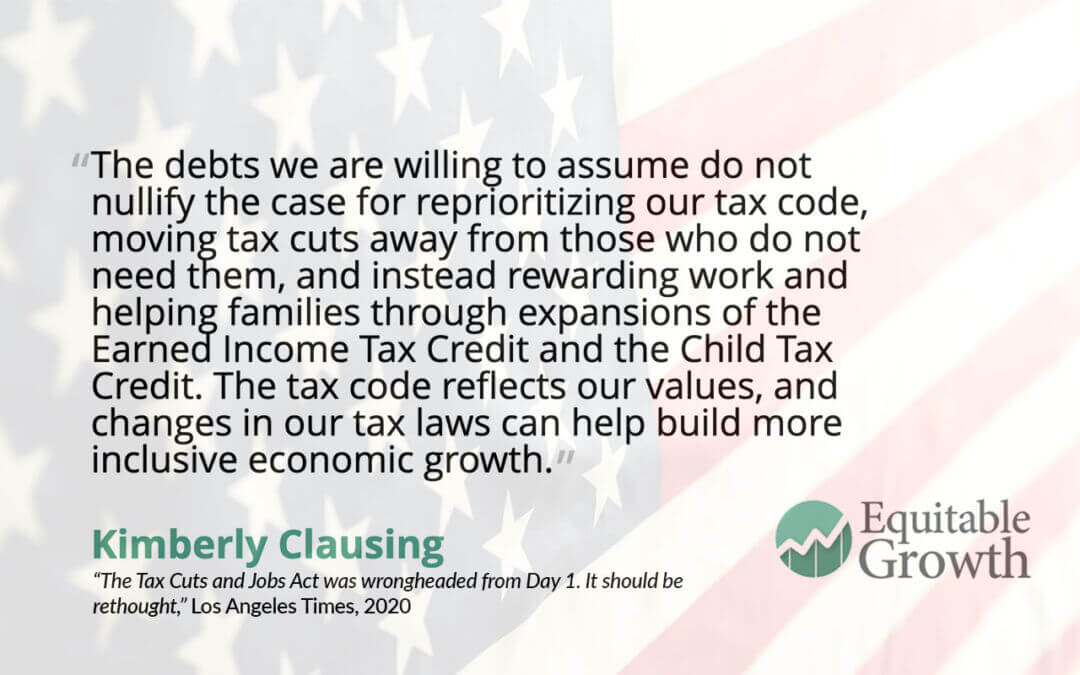
Neil Mehrotra
U.S. Department of the Treasury; previously economist at the Federal Reserve Bank of New York
Neil Mehrotra serves in the Treasury Department as the deputy assistant secretary of macroeconomic analysis. Mehrotra has been funded by and written for Equitable Growth on topics from secular stagnation and inequality to fiscal policy stabilization. His background in macroeconomics and previous position as an economist for the Federal Reserve Bank of New York further highlight his preparedness to analyze macroeconomic policy for the administration and guide decision-making to reduce overall inequality and bolster economic growth for all Americans. Prior to working at the New York Fed, Mehrotra was an assistant professor of economics at Brown University.
His research has been published in the American Economic Review, Papers and Proceedings, and has been cited in various news outlets, including The Washington Post, The New York Times, and Business Insider.
Mehrotra was an Equitable Growth seminar speaker, discussing his paper on the consequences of increased public debt. This event was an installment of our monthly academic seminar series, which aims to elevate important new research on issues related to whether and how economic inequality impacts economic growth. If you would like to read the paper, you can find it here and watch the seminar here.
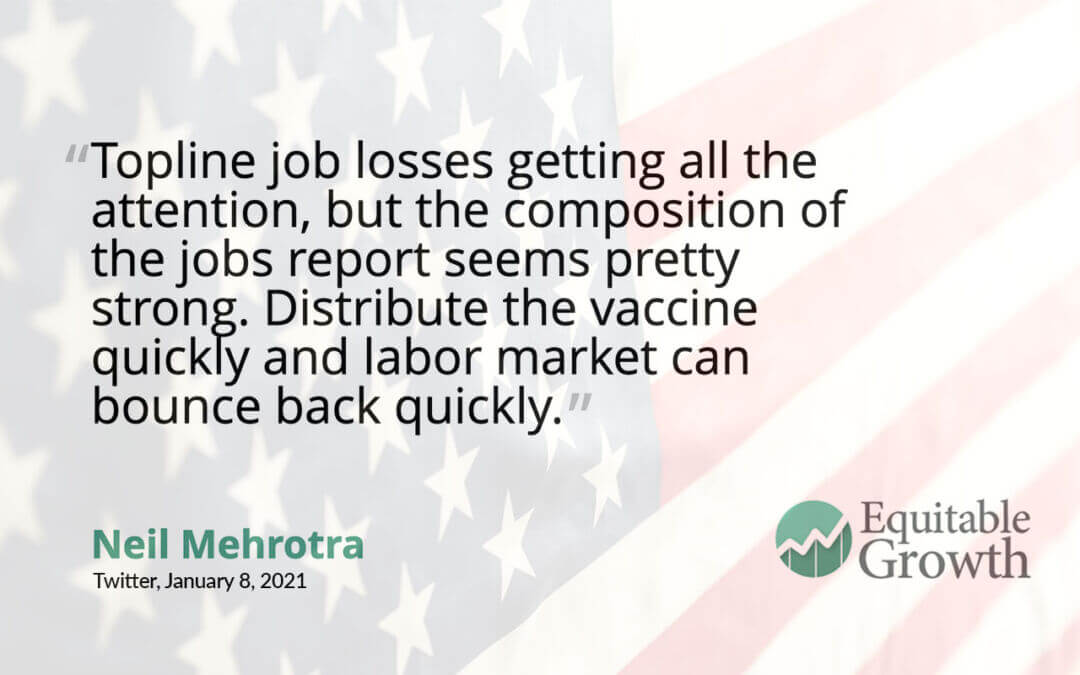
Tim Wu
White House National Economic Council; previously professor at Columbia University
Tim Wu serves as the special assistant to the president for technology and competition policy on the National Economic Council. His portfolio is similar to the one he and other scholars called for in the November 2020 antitrust transition report from Equitable Growth, in which they described the need for a White House Office of Competition Policy to keep tabs on all the different cross-cutting ways the federal government shapes markets. That report also covered many additional ways Congress and the Biden administration could revitalize antitrust enforcement and restore competition.
Earlier this month, President Biden signed a new executive order, which Wu took the lead in authoring. Many of the 72 initiatives in the federal directive to promote healthy competition in the U.S. economy were inspired by principles put forth in Equitable Growth’s antitrust transition report.
Wu was most recently a professor at Columbia University law school. Prior to being a professor, Wu was enforcement counsel in the New York Attorney General’s Office, worked on competition policy for the National Economic Council for the Obama White House, and in antitrust enforcement at the Federal Trade Commission.
Wu was a guest speaker during a virtual conference in November 2020 to discuss the release of Equitable Growth’s antitrust transition report. You can watch the event here.
